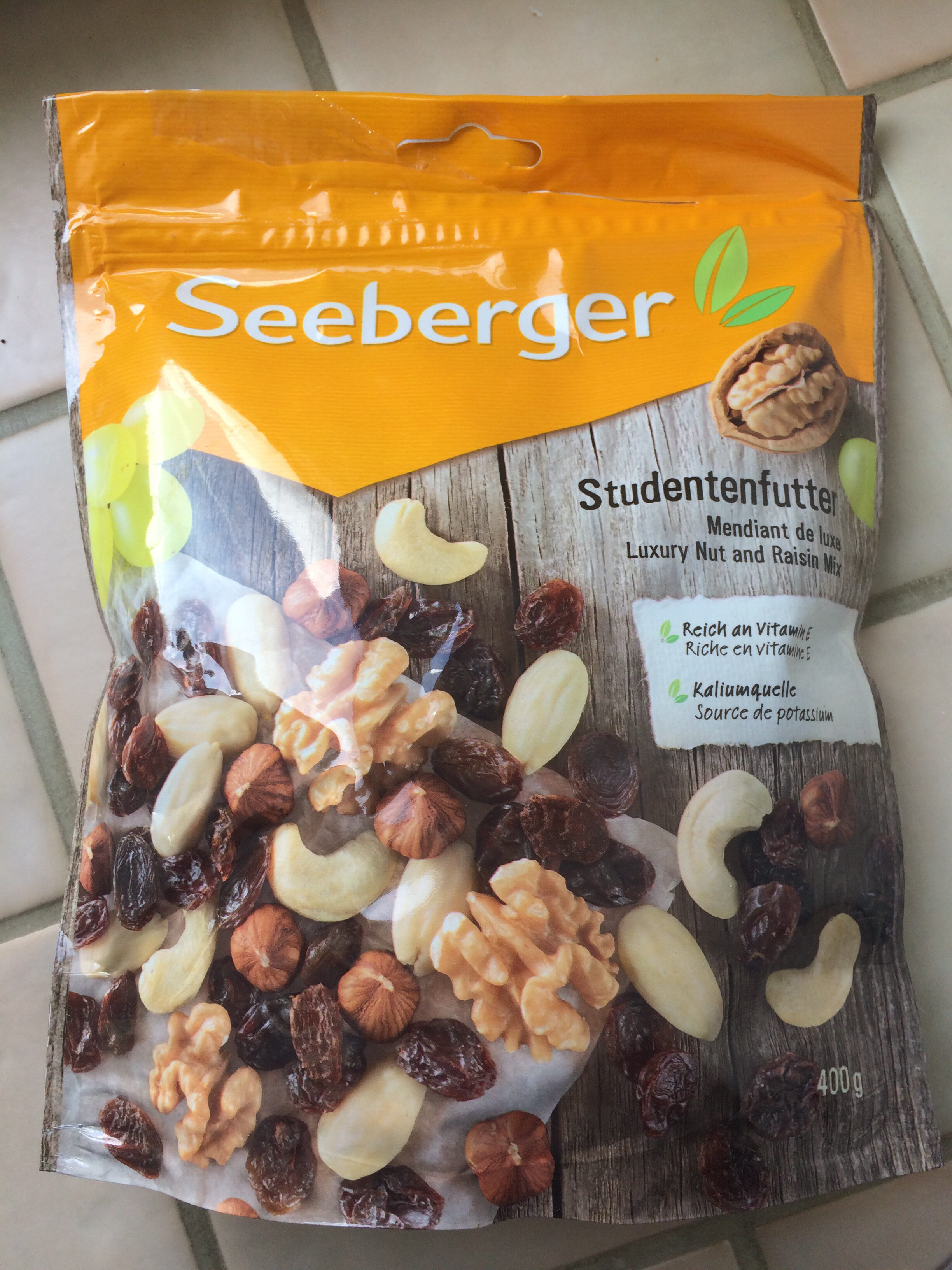Seeberger Studentenfutter 400G
This product page is not complete. You can help to complete it by editing it and adding more data from the photos we have, or by taking more photos using the app for Android or iPhone/iPad. Thank you!
×
Barcode: 4008258154236 (EAN / EAN-13)
Quantity: 400g
Packaging: Plastic
Brands: Seeberger
Categories: Plant-based foods and beverages, Plant-based foods, Nuts and their products, Nuts, de:Studentenfutter
Labels, certifications, awards: Vegetarian, Vegan
Origin of ingredients: Australia, Chile, Côte d'Ivoire, Italy, South Africa
Manufacturing or processing places: Allemagne
Traceability code: D-89025
Link to the product page on the official site of the producer: http://www.seeberger.de
Stores: Leclerc, carrefour.fr
Countries where sold: France, Germany, Switzerland
Matching with your preferences
Environment
Packaging
Transportation
Report a problem
Data sources
Product added on by kiliweb
Last edit of product page on by foodless.
Product page also edited by driveoff, elenizz, foodrepo, itsjustruby, karbon, openfoodfacts-contributors, packbot, prepperapp, reinerh, roboto-app, scanbot, sosotal, tacite-mass-editor, yuka.VDVoYlNMWVB2djB0cThVZnJrbjN5L0VxeWJPRFQwS3dPdTR0SVE9PQ, yuka.YjdnQUd2Z0crOUlhb3MwOHdCL3IzKzEweVlMeFFWT0hDN1ZJSVE9PQ, yuka.sY2b0xO6T85zoF3NwEKvlmNIUtTfpD3aFifSg32k99awI7K4buxp6IjEL6g, yuka.sY2b0xO6T85zoF3NwEKvlnN7TOXxvg_EMyTtqUyp4OqzAIbif_R-_KzeGKs.









